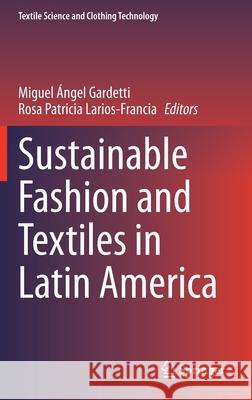Sustainable Fashion and Textiles in Latin America » książka
topmenu
Sustainable Fashion and Textiles in Latin America
ISBN-13: 9789811618499 / Angielski / Twarda / 2021 / 364 str.
Kategorie BISAC:
Wydawca:
Springer
Seria wydawnicza:
Język:
Angielski
ISBN-13:
9789811618499
Rok wydania:
2021
Wydanie:
2021
Numer serii:
000607006
Ilość stron:
364
Waga:
0.70 kg
Wymiary:
23.39 x 15.6 x 2.24
Oprawa:
Twarda
Wolumenów:
01
Dodatkowe informacje:
Wydanie ilustrowane











